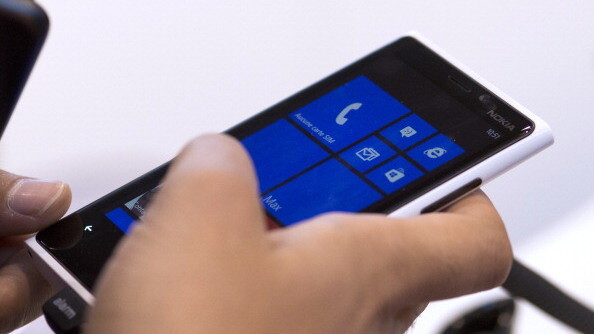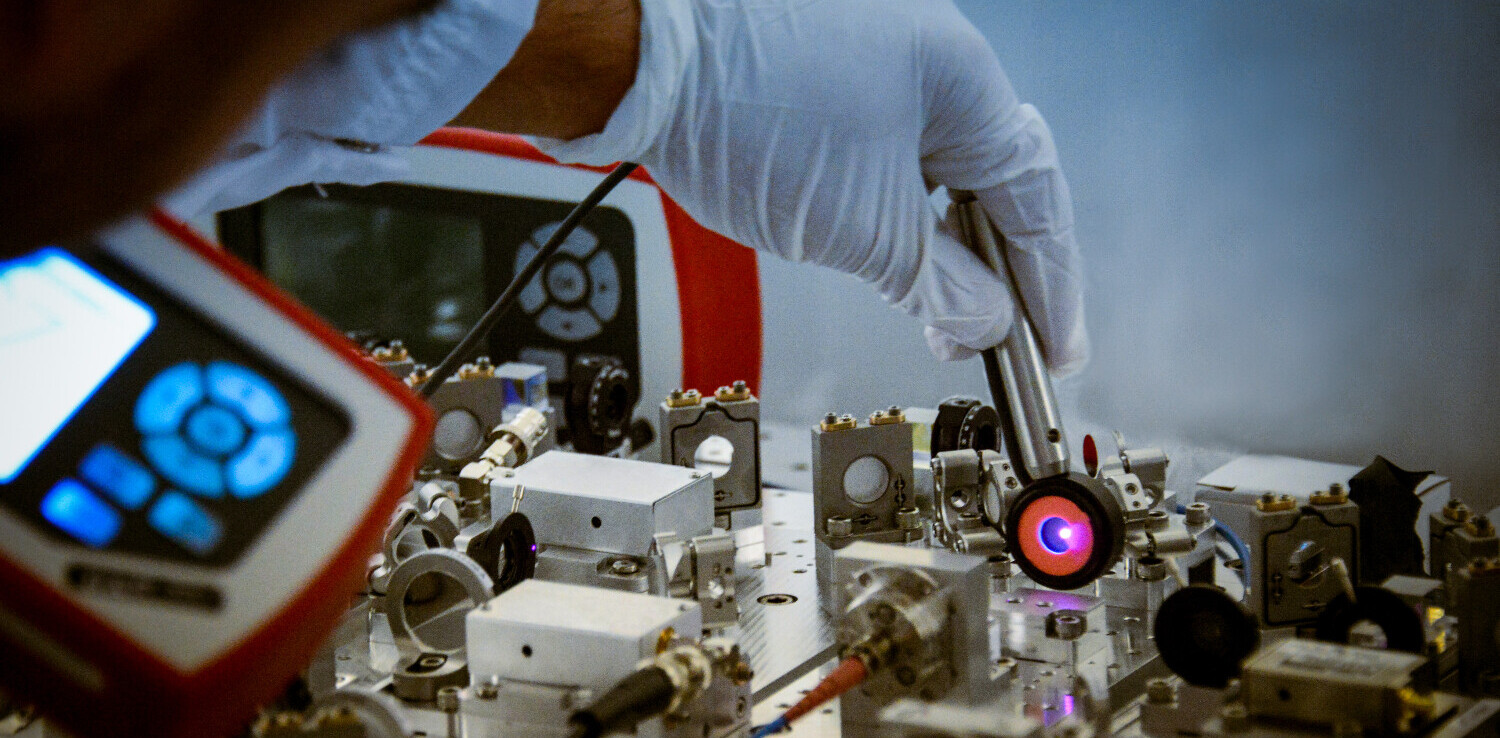
Microsoft as a company is an elder statesman of technology, with its history in the industry woven tightly into the fabric of the industry, as much in the tech world comes directly from Redmond.
However, decades into its history, Microsoft is working to add a new focus to its traditional consumer-and-enterprise view of the world: startups.
Yes, Microsoft is working to link up, nurture, fund, and accelerate startups around the world, using a combination of financial, technological, and relationship tools. It’s a large, diverse undertaking that until now has been a touch unfocused. The company is hoping to change that, bringing its efforts to heel in a more cohesive fashion.
To that end, Rahul Sood has joined Microsoft, and, after starting the Bing Fund – more on that later – now enjoys the job title of Global General Manager for Startups at Microsoft, though we might have the capitalization a bit off. In short, Sood is the big cheese of startup work at the company.
His path to Microsoft isn’t traditional, but it isn’t outlandish either. Previously he built VooDoo PC, a gaming hardware company that eventually sold to HP. Dell, as you will recall, picked up Alienware, arguably VooDoo’s direct competitor.
I caught up recently with Rahul, and as the TNW conference kicks off, it’s a perfect time to take a look at just what Microsoft is doing to link up with young companies. Can it find its cool? Let’s take a look.
Threads
Rahul joined Microsoft without a clear role, in his estimation. He stuck around for a full 11 months and the decided that he had either to build something of value, or he would find himself unemployed. His words, I assure you.
Looking at the startup space – Rahul will confess to status as an angel investor – he decided that he wanted to build a program that “startups would kill to join.” Microsoft has a number of unique strengths in his view, not the least of which is its deep relationship with a great number of enterprise-level companies. Startups that are focused on that space could use a friend like Microsoft. And Microsoft has money.
And thus the Bing Fund was born.
Bing Fund
Though Rahul is now handling a larger role, he still active with the Bing Fund.
You are always told, according to Rahul, that when you head into a large company, things simply aren’t going to work as you expect. That said, adopting an attitude in which ‘no’ is not an acceptable answer can help move things along.
The Bing Fund faced friction before it became a reality. Microsoft as a company didn’t make investments of the sort before. Microsoft has cash – endless mountains of it – but how can a company of its scale keep functional tabs on its ROI? In this case, seed funding wouldn’t just be a needle in a haystack, it would instead be a speck lost in sand on a beach.
Microsoft doesn’t need a small investment to pay off. It doesn’t. If something like its investment into Facebook makes it hundreds of millions, then great! But a seed round? Well, the numbers just don’t tip the scale.
That in mind, companies that receive money from Microsoft via the Bing Fund are invested in with a convertible note. And Microsoft is – at least it intends to be this early in the life of the fund – willing to forgive the debt completely if a company meets “certain thresholds.” So if you are a great fit with Microsoft, the company will simply absolve any claim to your shares.
With great assets comes potential benevolence.
The gist of this is that Microsoft is looking to partner with growing companies, not own them. This may sound like generosity, but more likely the company simply doesn’t want to manage them. The traditional role of an investor isn’t what it wants. This isn’t to say that companies part of the Bing Fund are not supported, it is instead to point out that Microsoft isn’t a normal source of capital.
Partnerships help Microsoft where it counts: growing cash flow, and not where it doesn: more cash in the bank divorced from continuing income; Microsoft’s investors don’t value the company as much on its bank account as its ability to grow future top and bottom line.
As an aside for entrepreneurs, here’s what Rahul is looking for, if you want his money: Companies that are disruptive, have a balanced team, and that Microsoft can bring real value to.
This value addition isn’t surface-level. I volunteered the example of a company that could benefit from the Azure cloud computing platform. That didn’t sit well with Rahul, as it was too vauge; other firms could offer that same value. How about, instead, he ventured, a company that could leverage both Azure, and Bing’s APIs? That, he said, “is when it gets very interesting.” Microsoft Research was also name-checked as a resource that startups might mine once they link up with the company.
How much money might Microsoft invest? It’s flexible, according to Rahul, but the company doesn’t do full rounds. It prefers instead to be one of several seed investors; again, Microsoft’s cash is a weapon, but in its view its rolodex is far more valuable than straight cash. Others have money. Dollars are cheap.
The company is willing, perhaps, to put more money into B and C rounds. We’ll have to wait and see if that happens.
Efforts
The Bing Fund is only one of Microsoft’s startup-oriented initiatives. It also contributes to venture funds, teams with accelerators, and operates BizSpark, which is its own shebang.
Its work in Rio, however, merits a glance. As TNW’s Anna Heim reported recently:
Microsoft is launching an accelerator in Rio de Janeiro, the company announced. Called Acelera Rio, it plans to welcome 15 startups over the next 24 months.
As we reported, Microsoft announced a few days ago that it would open an advanced tech center in the city, and invest around $100 million USD over the next four years. […]
In addition, it will provide each startup with up to R$1 million in convertible notes – around $500k – which will be granted in several installments if they reach pre-established quarterly goals.
The fund is in partnership with the government, which is also putting in funds to help startups pay salaries.
The wider view is this: Microsoft is investing time and energy into reaching and helping young companies. In hopes that they will grow strong, and continue a firm diet of its software and service and device products.
Aside from the obvious commercial interest, why might the company take such an aggressive outreach program? Twofold, primarily because the company thinks that it is in its financial self interest. And two, because in terms of its brand among young companies, the firm has work to do.
Messaging
Let’s be frank, Microsoft has a mindshare deficit among startups and the burgeoning new classes of technology.
I recently attended Tech Forum at Microsoft’s headquarters, a yearly event that brings together a handful of press, and a parade of key Microsoft executives. It’s a fun confab, but there was a small moment of awkwardness that I should confess: During the opening session, we attendees were assembled for the first time. And the room had around a dozen Macbooks, and two other reporters scribbling on paper; at Microsoft’s event, among the journalists that often cover it the most, no one was typing on a Windows-based machine.
Like a said, a touch awkward.
What does this mean for startups and Microsoft? Simply that the company’s device and platform share, despite being the norm for most demographics, is all but barren among tech elites – in the startup sense – and the tech media. This tilts coverage against the company’s interests, frankly, as a lack of general awareness about its services and software often lead to woody journalism.
Direct engagement is the only solution. And just as with devices Microsoft is making progress, so too is the company penetrating minds in the Valley and beyond.
Next Steps
Terry Myerson – honcho of Windows Phone – has likened his team to a startup inside of Microsoft. The company is trying to become more nimble, in Rahul’s estimation. The alligning of assets isn’t just happening externally – think of the shared Windows core – but also internally, with improved inter-team collaboration. Microsoft is notorious for intra-bickering.
BizSpark, Rahul told TNW, is “doing great from the standpoint of paving the way inside and outside of Microsoft to create a pond where startups are using its products.” He wants to go deeper however, which seems to indicate that the Bing Fund could become a favored investor among select BizSpark firms.
Will Microsoft come into San Francisco, the locus of much of Californian technology innovation, in addition to its current campus in the South Bay? “Stay tuned,” Rahul told me, going on to mention the large number other markets that suport growing startup ecosystems, such as London, and parts of Israel.
Still, Rahul allowed, “Silicon Valley is obviously very important,” and Microsoft will keep it in its focus.
Looking ahead, Rahul wants to expand the Bing Fund “holistically.” When asked, he stated that BizSpark companies may up as Fund companies. What he needs, however, is people. The right people. At the “president level,” Rahul said,” things are changing” at Microsoft. And to continue that shift he needs people to staff the organs of Microsoft’s startup process.
Expect more money, more programs, and perhaps, change.
Image credit: FRED DUFOUR/AFP/Getty Images
Get the TNW newsletter
Get the most important tech news in your inbox each week.




